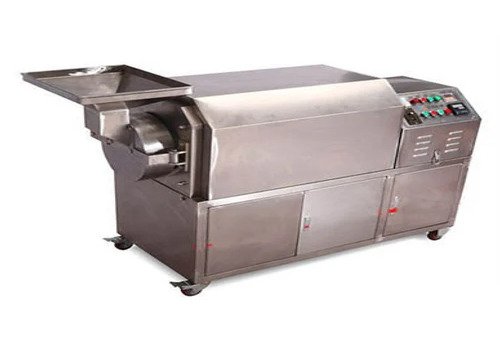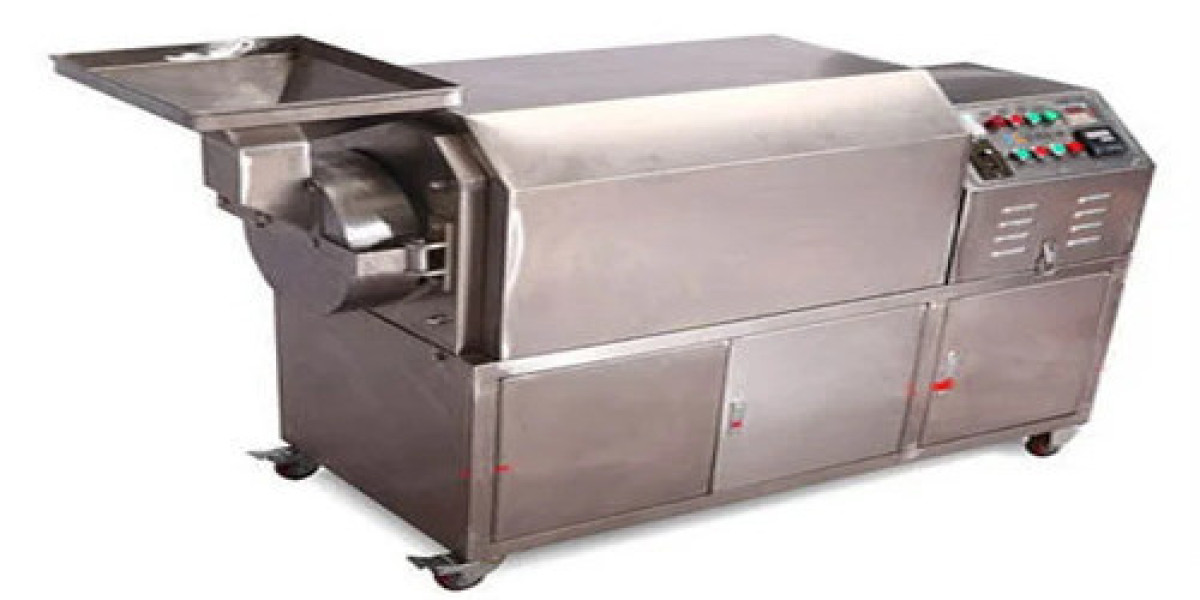Micro Industires Peanuts have been a popular snack for centuries, enjoyed for their rich flavor and nutritional benefits. The process of roasting peanuts has evolved significantly over time, from traditional methods to the advanced technologies we see today. This evolution has not only improved the efficiency and consistency of roasting but also enhanced the flavor and quality of the final product. In this blog, we'll explore the journey of the peanut roaster machine manufacturer and how it has transformed peanut roasting from a labor-intensive task to a streamlined industrial process.

Traditional Methods of Peanut Roasting
Open Fire Roasting
In the early days, peanut roasting was a simple yet labor-intensive process. Peanuts were roasted over an open fire, usually in large pans or pots. This method required constant attention to ensure the peanuts were evenly roasted and not burnt. The heat was difficult to control, leading to inconsistent results. While this method is still used in some rural areas, it is largely inefficient for large-scale production.
Sand Roasting
Sand roasting was another traditional method used in many parts of the world. Peanuts were buried in hot sand and stirred continuously to achieve an even roast. This technique provided better heat distribution compared to open fire roasting but still required significant manual effort and attention. Additionally, sand particles often adhered to the peanuts, requiring thorough cleaning before consumption.
The Advent of the Peanut Roaster Machine
Drum Roasters
The first significant advancement in peanut roasting came with the introduction of drum roasters. These machines featured a rotating drum that allowed peanuts to be roasted more evenly and with less manual intervention. Drum roasters provided better control over temperature and roasting time, resulting in a more consistent product. They became popular in small to medium-sized operations and laid the foundation for further technological advancements.
Continuous Roasters
As demand for roasted peanuts grew, so did the need for more efficient roasting solutions. Continuous roasters were developed to meet this demand, allowing for continuous feeding and roasting of peanuts. These machines utilized conveyor belts to move peanuts through a heated chamber, providing consistent and even roasting. Continuous roasters significantly increased production capacity and reduced labor costs, making them ideal for large-scale peanut processing facilities.
Modern Technology in Peanut Roasting
Hot Air Roasters
Hot air roasting technology has revolutionized the peanut roasting industry. Unlike traditional methods that relied on direct contact with a heated surface, hot air roasters use circulating hot air to roast peanuts. This method ensures even heat distribution and reduces the risk of burning. Hot air roasters are highly efficient, with precise temperature control and programmable settings that allow for consistent and repeatable results.
Infrared Roasters
Infrared roasting is another modern technology that has gained popularity in recent years. Infrared roasters use infrared radiation to heat peanuts directly, providing a uniform roast without the need for a rotating drum or conveyor belt. This method is energy-efficient and allows for faster roasting times. Additionally, infrared roasters are capable of producing peanuts with a unique flavor profile, appealing to gourmet and specialty markets.
Smart Roasting Systems
The latest advancements in peanut roaster machine technology include smart roasting systems that incorporate automation and data analytics. These systems use sensors and software to monitor and control the roasting process in real-time. Operators can set specific parameters for temperature, airflow, and roasting time, ensuring optimal results with minimal human intervention. Smart roasting systems also collect data on each batch, allowing for continuous improvement and quality control.
Benefits of Modern Peanut Roaster Machines
The evolution of peanut roaster machines has brought numerous benefits to the industry:
- Consistency: Modern machines provide consistent and uniform roasting, ensuring high-quality products in every batch.
- Efficiency: Advanced technologies have significantly increased production capacity and reduced labor costs.
- Flavor: Improved roasting methods enhance the natural flavor of peanuts, making them more appealing to consumers.
- Safety: Automated systems reduce the risk of accidents and contamination, ensuring a safer working environment.
- Sustainability: Energy-efficient technologies reduce the environmental impact of peanut roasting operations.
Conclusion
The evolution of the peanut roaster machine from traditional methods to modern technology has transformed the peanut roasting industry. Innovations in roasting techniques have improved efficiency, consistency, and flavor, benefiting both producers and consumers. As technology continues to advance, we can expect even more exciting developments in the world of peanut roasting, further enhancing the quality and enjoyment of this beloved snack.
Whether you're a small-scale artisan roaster or a large industrial processor, investing in a modern peanut roaster machine can significantly enhance your operations and product quality. Embrace the advancements in peanut roasting technology and take your peanuts to the next level .
Micro Industries is India's leading manufacturer of Peanut roaster machine manufacturer . You can contact them for further information regarding the Peanut roaster machine manufacturer at

